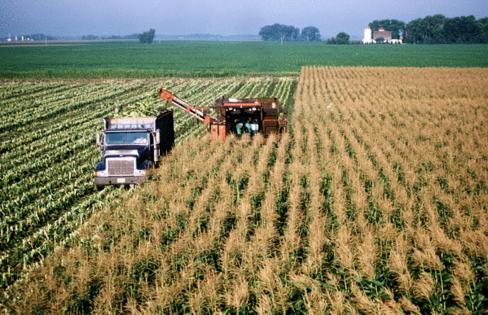Biden opens door for tax credits so corn farmers can grow jet fuel
Published in Business News
To cut greenhouse gas emissions from airplanes, the Biden administration issued guidelines this week that could shape U.S. farming for decades by offering corn growers tax credits to turn their crop into jet fuel.
To qualify, farmers would have to do three things on the land where they grow the corn: plant cover crops, avoid tilling the soil and use "enhanced efficiency" nitrogen fertilizers. Those could be relatively difficult hurdles for some farmers, such as those in Minnesota, where cover crops are rarely grown.
Minnesota's corn farmers had hoped for easier access to the tax credits, and said they will push back against the requirements. Environmental groups and some scientists, meanwhile, said the incentives may only cement corn's dominance on the landscape and encourage the destructive plowing of more grasslands, woodlands and marginal farm land to grow it.
The Biden administration wants the U.S. to produce 3 billion gallons of airline fuel a year from biofuels that are created from any kind of crop or biomass that emits at least 50% fewer emissions than traditional jet fuel. The 2022 Inflation Reduction Act promised producers of those crops a tax credit of between $1.25 to $1.75 per gallon, a potential windfall for Minnesota's corn growers.
But the law wasn't clear about whether corn-based ethanol would qualify. It left it up to federal agencies to analyze whether the totality of emissions created by turning corn into "sustainable aviation fuel," which requires extensive amounts of land, water and fertilizer, could meet the 50% reduction threshold.
Under the new guidelines, corn growers would qualify so long as they adopted the "bundle" of all three land practices.
The incentives are an important stepping stone that acknowledge "the important role farmers can play in lowering greenhouse gas emissions," U.S. Secretary of Agriculture Tom Vilsack said in a statement. "This is a great beginning as we develop new markets for sustainable aviation fuel that use home grown agricultural crops produced using climate smart agricultural practices."
Corn growers from around the Midwest had hoped to find a new end-user for ethanol processed from their row crops, amid fears that as more electric vehicles and hybrid cars are put on the road demand for ethanol gasoline will fall. Air travel could provide an almost insatiable demand for the corn-based fuel for the foreseeable future. Airplanes are responsible for about 2% of the country's greenhouse gas emissions.
Ethanol lobbyists praised the administration for keeping intact the industry's preferred model to calculate the life-cycle emissions of corn-ethanol. But corn growers said they will push back against the cover crop and no-till requirements. In 2022 cover crops were planted on only 3% of Minnesota's croplands, according to the U.S. Department of Agriculture.
Minnesota Corn Growers Association President Dana Allen-Tully, a southeastern Minnesota farmer, said requiring those practices for the tax credit is "unreasonable."
...continued
©2024 StarTribune. Visit at startribune.com. Distributed by Tribune Content Agency, LLC.







Comments